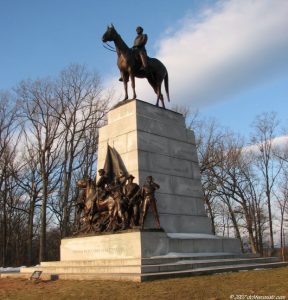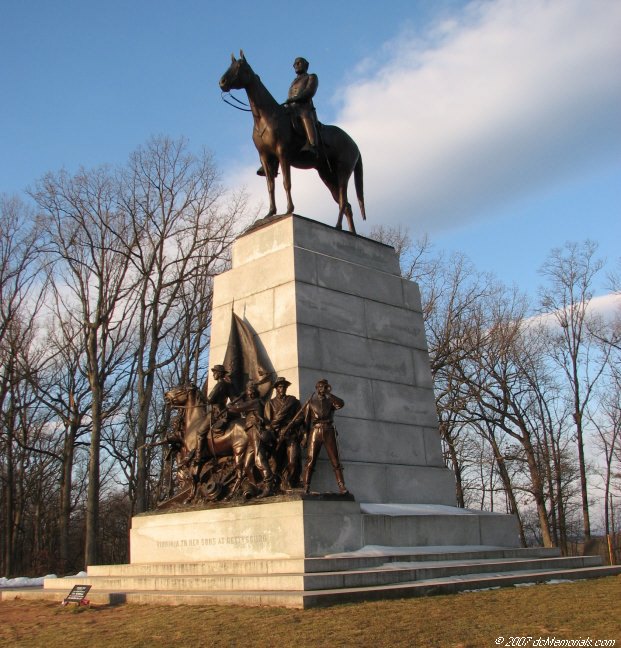
As the debate continues about the future of Confederate Monuments, I have been giving monuments in general and our interpretation of history a lot of thought.
Several questions have come to mind, and one is, as a Christian, what should my response be when a monument becomes an idol? Symbols are important in our lives, but when those symbols pass that point, and we begin to worship the metal and stone, it becomes a theological problem.
There is also the issue of how we interpret history in the present. Most, if not all of the Confederate monuments in question were erected by the Daughters of the Confederacy in an attempt to continue the Lost Cause narrative. They were also constructed during the time of Jim Crow in the South, again as a way to remind people of the glory of the Confederacy and what it stood for.
As much as we would like to think that the study of history is a static endeavor it is not, it is constantly changing and our interpretation of it, as is our understanding of theology, in constant need of readjustment.
Several days after the horrible events in Charlottesville, Virginia, the President of the United States attempted to draw a line connecting Nazis, White Supremacists, Confederate Statues and Monuments, and monuments to Washington and Jefferson. The common thread was the issue of slavery, and yes it is a common thread. However, the times were different when Washington and Jefferson owned slaves as well as people in Boston.
Just to be clear, I am in no way defending the institution of slavery, but I cannot put my 21st-century sense of morals into the mind of a 18th-century person. Slavery was legal in the United States when Jefferson and Washington owned slaves. The Constitution allowed it, the church allowed it, and the morality of the day allowed it.
However, by the middle of the 19th century, the time of the Civil War, the morality of the country had begun to shift away from owning other human beings as chattel. Keep in mind equality of the races was not even on the radar except to say that they were not equal. The abolitionists in the North wanted slavery abolished, and the slaves freed, but they did not want them to vote or be considered equal to the white man.
So what the President attempted was a false equivalency in trying to draw this line. But that leaves the question of how we interpret history today.
I have made my position clear on Confederate monuments. I believe, as did the law of the day and the law of today, that the men who took up arms against the United States of America were, and are, traitors. At wars end, they were not given their citizenship or their right to vote or hold public office back automatically, for the private soldier that was different. The officers and political leaders had to apply and swear an oath, to have their citizenship restored. Under the law, they were indeed traitors. Robert E. Lee did not have his citizenship restored until the 20th century, and as far as I know, Jefferson Davis never received his.
Symbols are important, and they tell the story of past events. They give us a visual reminder of what the event was. But, and this is going back to the theological argument when they become idols, centers for rallies and demonstrations it becomes problematic.
The descendants of Stonewall Jackson have written concerning the removal of Confederate Monuments in Richmond. They are proud of their family but also understand what that pride means. I do not believe Stonewall Jackson owned slaves, but he still fought to preserve the institution. They make the point in their letter that the monuments “offer pre-existing iconography for racists” and for this reason, they must be removed.
They go on to say;
“The people who descended on Charlottesville last weekend were there to make a naked show of force for white supremacy. To them, the Robert E. Lee statue is a clear symbol of their hateful ideology. The Confederate statues on Monument Avenue are, too—especially Jackson, who faces north, supposedly as if to continue the fight.”
Whatever these symbols once where they have now become something very different. You can read the rest of their letter here.
I do not believe removing a statue will erase history, but sometimes history belongs in a museum, where it can be properly interpreted, and not on city streets. Germany does not deny their past, but they confine it to museums and other places. There are no statues of the leaders of the National Socialist Party in Germany and many if not all, of the statues to Communist leaders in Russia, have been removed, this does not deny or erase that period of their history. America is the only country that erects memorials to her former enemies! Let that sink in. These were not patriotic Americans; these were traitors.
The question will continue for many more months and perhaps years, and yes, there will be hysteria and calls to rename Faneuil Hall in Boston and remove statues of Washington and Jefferson. Cooler heads will prevail, and our interpretation of events will change and update just as they always have.

